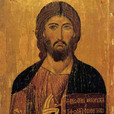
Summary: This episode of CS is titled – “Transitions”We ended the previous episode with Jesus on the cross just outside the walls of Jerusalem late Friday afternoon. The Jewish leaders & Romans thought that was the last of the enigmatic trouble-maker from Galilee. For that matter, His followers thought that was the end as well.If that HAD BEEN the end of Jesus’ story, how might history have labeled Him?Modern skeptics who consider the resurrection a mythic post-script, added by Jesus’ later followers, cast Jesus as a religious & social reformer; one whose goal was to turn the stiff formalism of 1st Century Judaism into a more personal & intimate faith in God. These skeptics recast the miracles attributed to Jesus as myths meant to explain the effect of His charismatic personality on others. They contend Jesus didn’t really turn a few fish & loaves into fish sandwiches for thousands; He merely used the generosity of a young boy to provoke the crowd to share with one another. He didn’t really walk on water, He merely came along the shore in a low lying mist. And He didn’t really rise from the dead; His example of love for God and others merely inspired the disciples to follow His example. His MEMORY endured, not His literal person; says the skeptic.So, WAS Jesus merely a reformer? Was His mission just to return Judaism to something Moses would have given a hearty thumbs-up to?While Moses would indeed endorse Jesus, He wasn’t merely one of the many prophets God sent to call people back to Himself. Moses would approve of Jesus because all Moses did pointed to & prepared the way for Jesus. Jesus was the original Former, not a RE--former; He was, the “I AM” Who spoke to Moses from the burning bush & commissioned him to lead Israel out of bondage, into the Promised Land.This becomes clear when we consider the words of Jesus at that last meal He shared with His disciples. When He took the cup to inaugurate the rite of Communion, He said something remarkable. “This is the NEW COVENANT in my blood which is shed for you.” Those young men sitting round that table could not mistake what Jesus meant, for it was something that had been burned into them since childhood. Jesus made claim to the cherished promise of the Prophet Jeremiah who in ch. 31 said,“Behold, the days are coming, says the Lord, when I will make a new covenant with the house of Israel and with the house of Judah—not according to the covenant that I made with their fathers in the day that I took them by the hand to lead them out of the land of Egypt, My covenant which they broke, though I was a husband to them, says the Lord. But this is the covenant that I will make with the house of Israel after those days, says the Lord: I will put My law in their minds, and write it on their hearts; and I will be their God, and they shall be My people. No more shall every man teach his neighbor, and every man his brother, saying, ‘Know the Lord,’ for they all shall know Me, from the least of them to the greatest of them, says the Lord. For I will forgive their iniquity, and their sin I will remember no more.”Jesus laid claim to that promise, saying He was its fulfillment & what He was about to do in going to the cross would activate the New Covenant. Jesus didn’t come just to reform Judaism or refresh the covenant Moses mediated with Israel. He came to consummate that covenant and initiate a new, based not on the performance of the Mosaic Law, but on abiding faith in Him.Of course, if Jesus had remained in the tomb, He’d be nothing but a miniscule footnote to the history of the 1st Century, if that! à Just one more in a long parade of Jewish trouble-makers who had a little flurry of popularity among some malcontents. Nothing of consequence would have followed.But His resurrection changed everything. It turned His timid band of followers into men of unquenchable vision & voracious determination. Only the resurrection can acc
